Retail Week’s Digital Summit takes place on Wednesday, February 7, and will lift the lid on retailers’ digital strategies for the year ahead. Here we look at how three of our speakers are making tech pay
Gousto, H&M Group and John Lewis are confirmed to speak at the event, which will run from 8.30am to 12.30pm, with retailers including Currys, Dunelm, The Body Shop, Space NK, Harrods and more already confirmed to attend.
Apply for your place today and join us for compelling content sessions and unrivalled networking opportunities exploring the digital trends you need to leverage in 2024 and beyond.
Gousto: Embracing the power of AI
Meal-kit retailer Gousto uses AI throughout its value chain, from improving customer recommendations to reducing the environmental impact of its menus.
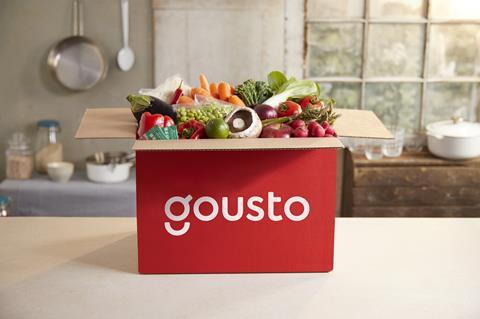
AI algorithms learn from customers’ purchasing patterns, using factors such as ease of cooking and the number of vegetables in regularly purchased recipes, to accurately predict what they might want to order next and make personalised product recommendations.
And AI tech is also being used to improve the sustainability of menus. Machine learning models support order forecasting, reducing overstock and food waste, and CO2 is now tracked through Gousto’s algorithm libraries.
The brand monitors carbon impact throughout its supply chain, quickly spotting areas requiring action anywhere from farm to distribution, helping to minimise the carbon emissions produced by its recipes without any impact to the customer.
Gousto states that, through purchasing a weekly subscription box, customers reduce their carbon emissions by 23% compared with the same shop purchased at the supermarket.
The retailer sold 7,500 boxes in its launch year, 2012, which has grown to more than 2 million boxes distributed weekly in 2022.
As Gousto’s sales grew, so did its tech capabilities. In 2021 it launched Gousto Bento, a second arm of the business that allows it to sell its tech stack capabilities and AI modules to other companies across a breadth of sectors.
Hear from Gousto’s Chief Technology Officer Shaun Pearce as he explores the brand’s AI strategy with your free pass to the Digital Summit.
H&M Group: Prioritising personalisation
H&M Group’s print-on-demand merchandise service, Creator Studio, opened its doors to the public in October 2023 with the launch of a new generative-AI powered clothing creation tool.
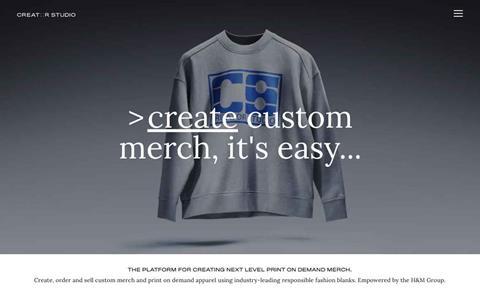
Setting out to help anyone play designer, the new text-to-image tool uses AI to transform customer prompts into visual artworks, which are then printed on the brand’s dedicated range, True Blanks, and fulfilled through H&M Group’s global infrastructure. Personalisation and ease of use were key factors contributing to the tool’s development, which aims to “empower and enable any creator to express themselves”, be that individual consumers or brands.
The introduction of AI to the tool, which originally launched as a B2B platform in 2021, aims to reduce the barriers to creating personalised or custom garments, which typically come at higher costs for design and manufacture, and can often result in overstock.
Anecdotally, there are sustainability benefits to ordering custom, too. One in 10 off-the-rack fashion items are reportedly never sold, ending up in landfill, and an estimated 200,000 tonnes of fashion waste is thrown away or incinerated every year across Western countries.
Personalised and custom garments encourage consumers to make more considered purchase decisions, are likely to hold more sentimental value and are less likely to end up in the bin, creating a win-win situation for retailers and shoppers alike.
Want to dive deeper into the digital strategy of H&M Group? Join Creator Studio’s Head of Brand & Marketing Mårten Al Fakir Larsson at the Digital Summit on February 7.
John Lewis Partnership: Investing in digitally driven customer experiences
John Lewis Partnership has been on a transformational journey since announcing its turnaround plan in October 2020. Investing in creating seamless, tech-enabled in-store customer experiences is high on its list of priorities.
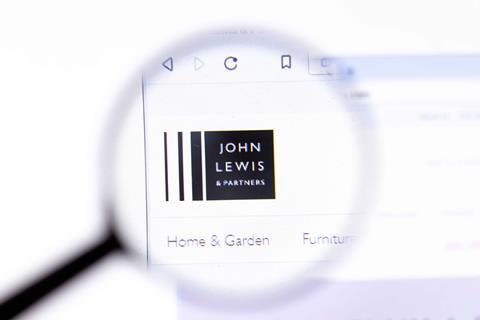
More than £1bn has been committed to accelerate its ecommerce offering and boost in-store CX, with the seeds of success beginning to sprout.
Announcing interim results in September 2023, John Lewis reported that shop sales had seen a 2% improvement, driven by increased footfall from the draw of new services “such as personal styling appointments (up 27%), beauty services (up 23%) and nursery consultations (up 17%)”.
In August 2023, the retailer announced it had invested in a £100m agreement with Google, with the aim of cutting its data storage costs and boosting its AI efforts.
Retailers including Zalando, The Very Group and Ikea have taken the lead when it comes to digital and tech investments in 2023, and John Lewis is determined not to be left behind.
In August, the department store retailer also announced plans to invest in tools aimed at improving customers’ omnichannel shopping experiences, including augmented reality services and an AI customer-service bot.
Better data handling through the Google tie-up is set to come, with increased productivity one of the greatest benefits highlighted by JLP Chief Technology Officer Zak Mian in August.
Alongside operational benefits, there are also customer-facing perks. Offers provided through the retailers’ My John Lewis and My Waitrose schemes will become “more timely, relevant and personalised” as swifter and more comprehensive analysis of data opens avenues to better connect with customers.




















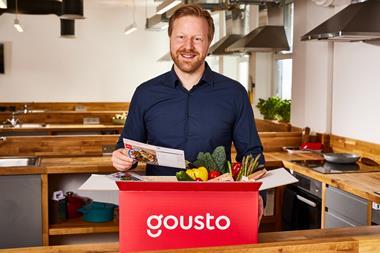
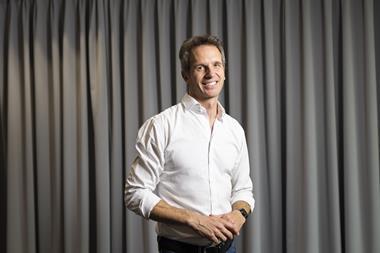
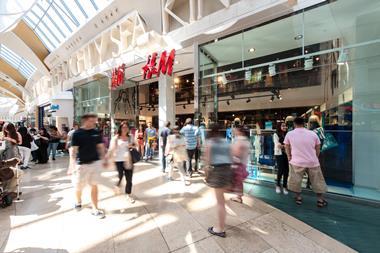

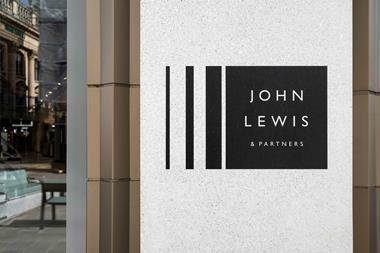
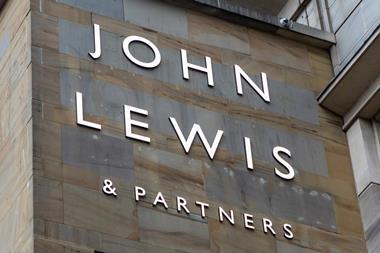
No comments yet